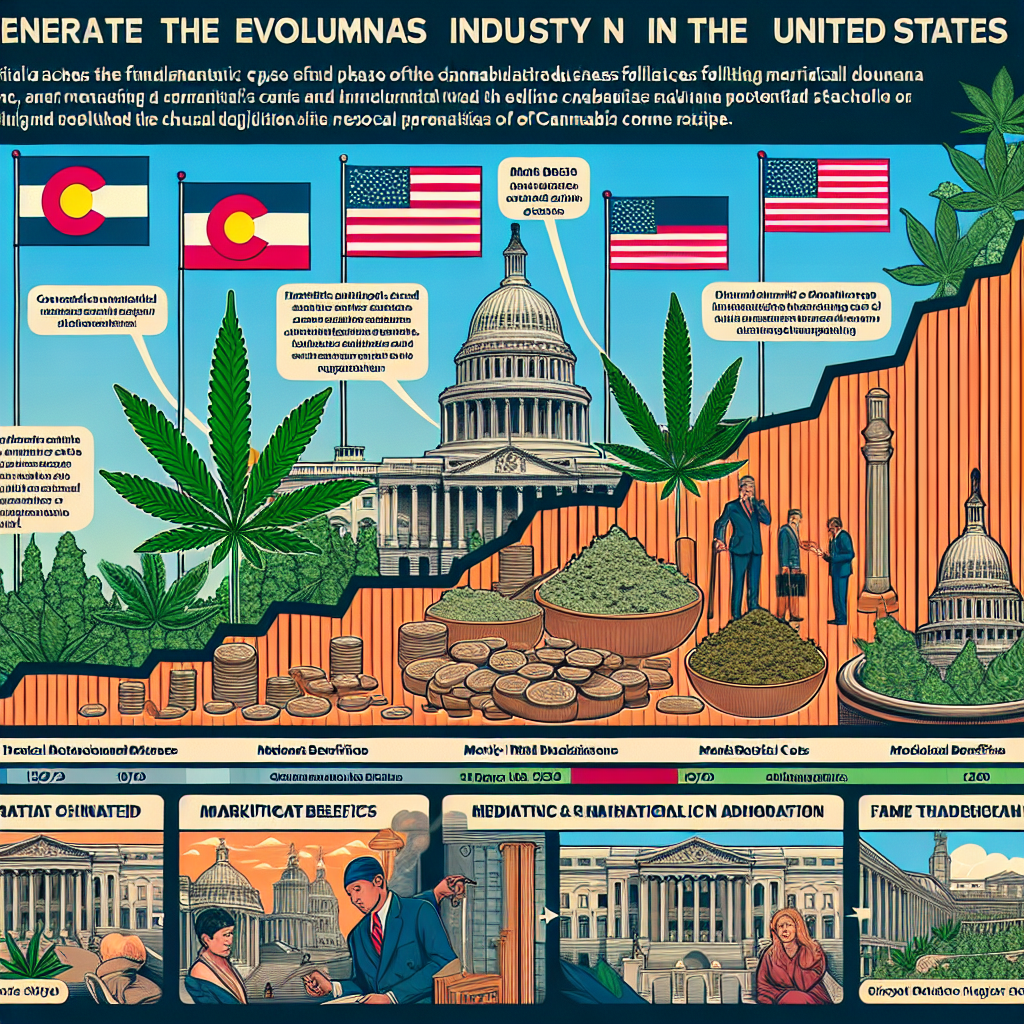
U.S. Cannabis Industry: New Policies and Trends
The landscape of the cannabis industry in the United States is undergoing significant transformations, primarily driven by recent governmental policy changes and market dynamics. As we explore the evolving scenario, understanding the impact of such transformations becomes crucial for stakeholders and observers alike. This blog post delves into the details of these changes and their broader implications.
Colorado’s Marijuana Industry: Growth and Challenges
In Colorado, the marijuana business has transitioned from explosive growth to facing maturity challenges. Since legalizing recreational marijuana, Colorado has seen significant economic benefits, with sales surpassing $15 billion since 2014. However, recent trends indicate a decrease in sales and prices, alongside a decline in business licenses. The state has also moved away from vertical integration, allowing companies to specialize, which has affected the market dynamics significantly.
Experts like Brian Lewandowski from the University of Colorado suggest that the industry is reaching a mature phase where maintaining profitability becomes challenging. The market’s saturation, regulatory costs, and increasing competition from other states with legal frameworks are pivotal factors influencing current trends. Despite these challenges, some businesses continue to thrive, showcasing the resilience and adaptability of the industry.
Federal Reclassification of Marijuana: A Paradigm Shift
The Biden administration’s decision to reclassify marijuana from Schedule I to Schedule III marks a historic shift in federal policy. This reclassification acknowledges marijuana’s medical benefits and opens the door for more comprehensive research and pharmaceutical involvement. Such a move is expected to reduce the tax burdens on legal cannabis businesses and mitigate some challenges posed by the stringent regulatory frameworks under Schedule I.
The reclassification is poised to reshape the industry, potentially reducing the illicit market and promoting more regulated, medical usage of cannabis. It also aligns federal policy more closely with public opinion and the laws of several states that have already legalized marijuana to some extent.
Implications and Future Directions
Colorado’s experience and the federal reclassification of marijuana provide critical insights into the future of the cannabis industry in the U.S. These developments suggest a trend towards more mature, regulated markets with a focus on medical and therapeutic potentials of cannabis. Moreover, with federal adjustments, we might see an increase in investment and innovation in the sector, further propelling its growth.
However, challenges remain, such as potential market saturation, competitive pressures, and ongoing debates over the social implications of legalization. As such, stakeholders must navigate these complexities with a strategic approach to harness potential opportunities and mitigate risks.
In conclusion, the cannabis industry in the U.S. is at a pivotal juncture, with significant regulatory changes paving the way for a new era. Observers and participants in the market will need to stay informed and adaptable to thrive in this evolving landscape.
For further details on Colorado’s marijuana industry, visit Colorado University’s official report. More information on the federal reclassification can be found on NBCNews.

